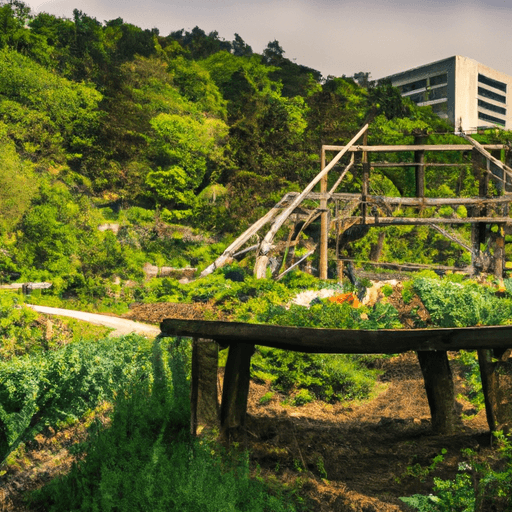Exploring the Pros and Cons of Organic vs. Non-Organic Gardening
Organic and non-organic gardening are two different approaches to cultivating plants. Each type of gardening has its own environmental, economic and health benefits and drawbacks. In this article, we’ll explore the differences between organic and non-organic gardening, compare the costs associated with each method, and provide an opinion on which one is best for the environment.
Environmental Benefits and Drawbacks
Organic gardening eliminates the use of chemical fertilizers and pesticides, which minimizes the risk of water contamination and soil erosion. Organic gardening also promotes biodiversity as it encourages the growth of beneficial insects and microorganisms. On the other hand, non-organic gardening may cause more environmental damage due to the use of chemical fertilizers and pesticides. These chemicals can contaminate water sources, lead to soil erosion, and reduce biodiversity.
Economic Benefits and Drawbacks
Organic gardening is more expensive than non-organic gardening due to the cost of organic materials such as compost and mulch. Non-organic gardening, on the other hand, is generally less expensive as it relies on synthetic fertilizers and pesticides. However, the long-term economic benefits of organic gardening outweigh the initial cost as organic produce is usually of higher quality and can be sold at a higher price.
Health Benefits and Drawbacks
Organic gardening eliminates the use of synthetic fertilizers and pesticides, which reduces the risk of exposure to harmful chemicals. Non-organic gardening, however, increases the risk of exposure to chemicals which can be toxic to humans and animals. Additionally, organic produce is usually of higher quality and contains more nutrients than non-organic produce.
Cost Comparison
Organic gardening requires the use of organic materials such as compost and mulch, which can be expensive. Non-organic gardening, on the other hand, relies on synthetic fertilizers and pesticides which are usually cheaper. In the long-term, organic gardening is typically more cost-effective as the produce is usually of higher quality and can be sold at a higher price.
Conclusion
Organic gardening is the best option for the environment as it eliminates the use of chemical fertilizers and pesticides, promotes biodiversity, and produces higher quality produce. Additionally, organic gardening is often more cost-effective in the long-term due to the higher quality of the produce. For these reasons, we believe organic gardening is the best approach to gardening.


















Comments
Leave a Comment